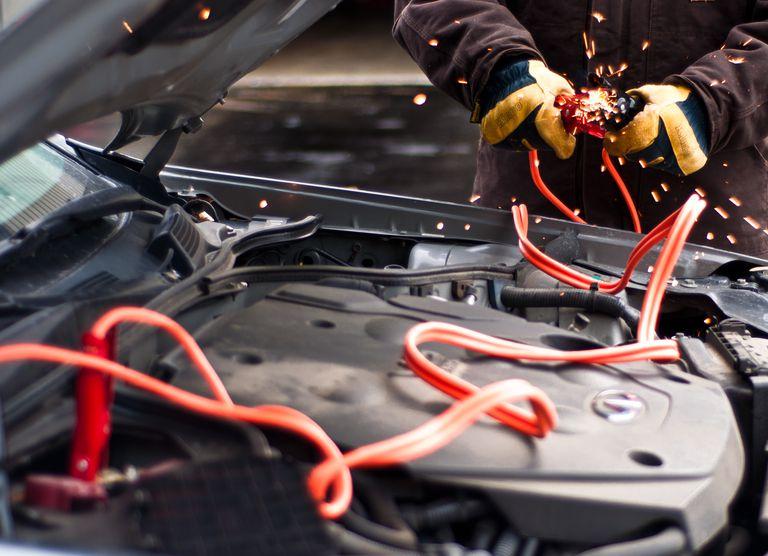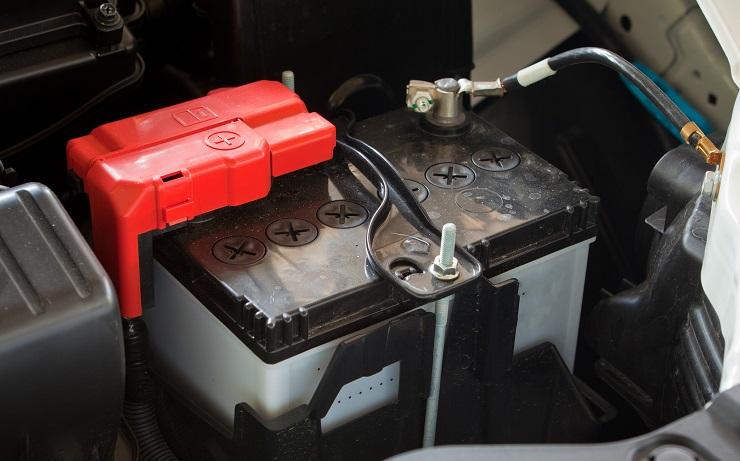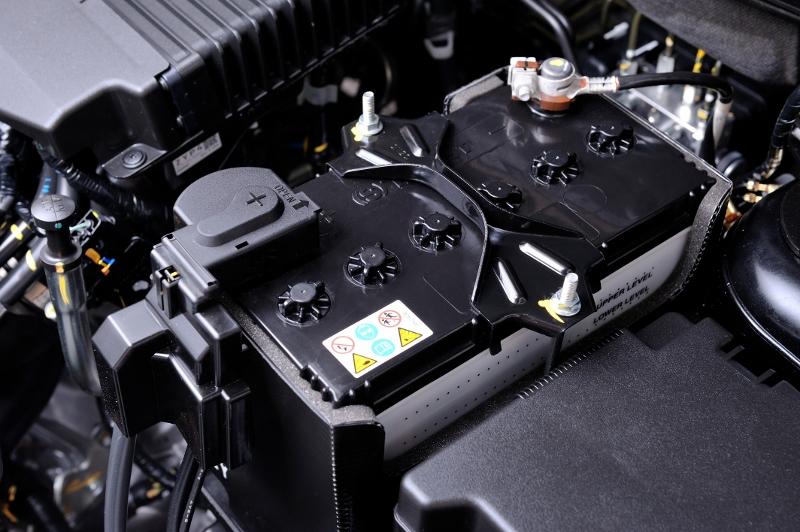An electronic circuit may run on AC or DC. So, auto enthusiasts might be curious to know whether the car battery AC or DC. Let’s find out along with what does AC and DC mean, how does a car battery work, and the benefits of DC units?
Contents
Is A Car Battery AC Or DC?
A car battery or any other battery releases DC voltage. It requires some additional circuits if you want to make it AC. For example, a DC battery can produce alternating current if it is paired up with an AC converter.
What Are AC And DC?
DC (direct current) is the streaming of electrons in a single direction. Thomas Edison used direct current for the first electric power transmission systems he invented.
The batteries that use DC power up small electronic appliances and gadgets like laptops, radios, microwaves, and more.

Alternatively, AC (alternating current) is a streaming of electrons where they continuously change direction. The current was used in the power transmission system invented by Nicola Tesla.
There are no AC batteries. There are some DC batteries that use converters to generate AC current. The alternating current streams in two directions and can carry electrons a long distance without losing any power.
Using an AC converter on a DC battery allows having more control over the energy source with the extra benefits of reserving the power in a portable battery unit.
The power grid that supplies power to the electrical outlets in your home is one of the places to use DC batteries with AC converters.
SEE MORE
Key Differences Between AC and DC Car Batteries
The main distinction lies in the direction of current flow. AC changes direction periodically, while DC maintains a constant flow. This fundamental difference impacts the way energy is generated, stored, and used within a car battery.
Impact on car performance
The choice between AC and DC has a significant impact on car performance. DC batteries ensure smoother operation and more efficient power delivery, translating to better acceleration, handling, and overall driving experience.
Charging systems: AC vs. DC
Most vehicles use DC charging systems, which are well-matched with the batteries’ native DC output. AC charging systems require additional conversion steps, leading to potential energy losses during charging.
Maintenance and longevity
DC batteries typically require less maintenance and have a longer lifespan compared to AC batteries. The simplicity of DC systems contributes to their durability and reliability.
How Does The Car Battery Work?
You already know the answer to the question of whether your car battery AC or DC. But, how does this C battery function?
Well, the sealed lead acid battery is used in most cars while some latest vehicles may have lithium-ion batteries. These lead acid batteries have 6 cells and produce 12 volts (12.6V to be precise).
Their capacity varies depending on the size and power requirement of the cars. For example, small vehicles use batteries ranging from 65 to 80AHr while it could be between 100 and 120AHr in SUVs.
In the argument about whether a car battery AC or DC, always remember that DC dominates low-voltage power systems and electronic appliances.

>> Buy a used car from reliable Japanese sellers here <<
The alternator constantly recharges the battery when the vehicle is running. A belt runs the alternator by engaging several accessories including two pulleys – one on the alternator and the other on the engine.
Car batteries can generate a high amount of DC for a short burst. They lose their efficiency over the years. But, a complete discharge can ruin them. You can just kill the battery by draining it all the way.
The Benefits Of DC Batteries
All vehicles use DC batteries including electric cars which are an excellent invention to reduce the potential environmental disaster by reducing carbon emissions.
DC batteries can transfer more power with fewer electrical losses over long distances. It means that they provide higher efficiency at a lower cost.
However, it is normal for them to wear out over a specific period. It’s normal to change the battery once or twice throughout the lifetime of your car. If you want to avoid changing it more than that, choose from some of the best auto battery units from a reputed brand.
FAQs on Car Battery AC and DC
-
Can I use an AC car battery in my vehicle?
While it’s possible, DC batteries are the standard and more efficient choice for most vehicles.
-
Are AC car batteries more environmentally friendly?
Generally, DC batteries are considered more environmentally friendly due to their lower energy conversion losses.
-
How often should I replace my car battery?
Car battery lifespan varies, but most batteries last around 3 to 5 years. Regular maintenance can extend their longevity.
-
Can I jump-start my car using an AC power source?
It’s not recommended. DC power sources, like another vehicle’s battery, are safer and more compatible for jump-starting.
-
Is it possible to convert my car’s electrical system from DC to AC?
Converting a car’s electrical system from DC to AC is complex and not practical. DC remains the standard for automotive applications.
Check out this video from Foolish Engineer to have a more-visual overview of the working of AC charger vs DC charger in cars!
Conclusion
When it comes to electricity transmission, alternating current (AC) is extremely efficient. There will be a continuous electric power supply and reduced current passes with AC.
When compared to DC, it ensures superior illumination and is less expensive. However, it will be costly to utilize in automobiles. Despite its popularity, it requires inverters to convert power to direct current (DC).
Most significantly, it is prone to overheating and can result in electric shocks and fire. They are less robust than DC generators and must run electrons back and forth to convert different voltages.
If we talk about DC, it has its own set of pros and downsides. When AC power transmission is insufficient for long distances, direct current (DC) provides a suitable option. We may deduce from the foregoing that a DC automobile battery is superior.




can you power a ps3 with a car battery
Very informative post, Tsukasa Azuma! The clear distinction between AC and DC batteries makes it easy to understand why cars rely on DC power. Also, the impact on performance and charging is an interesting aspect. Appreciate the detailed explanation!